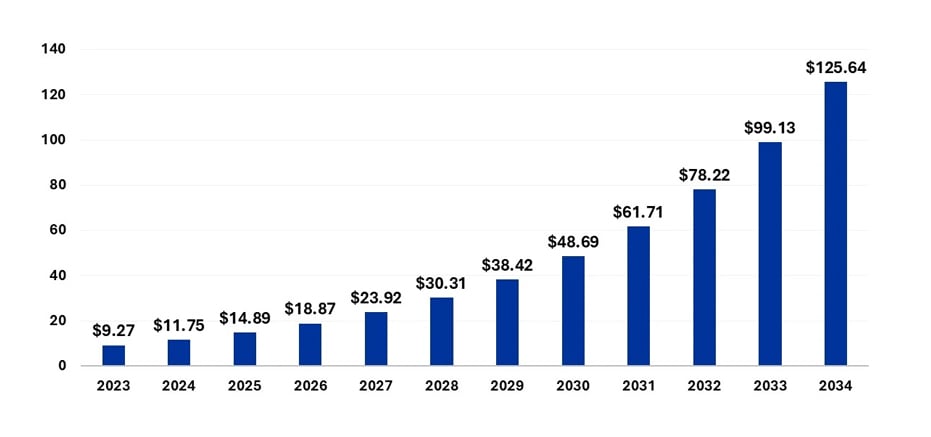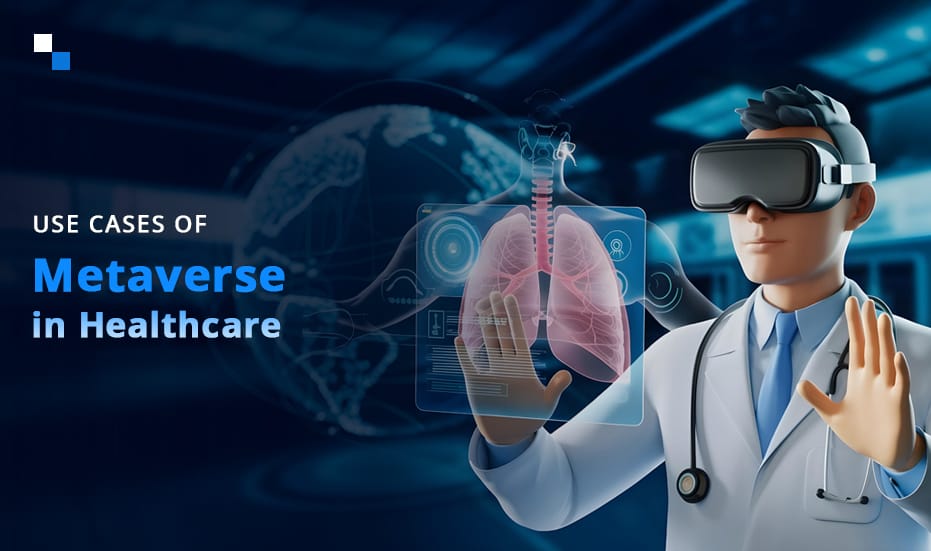Leveraging metaverse in healthcare is a revolutionary force that is reshaping the landscape of medical care and patient interaction. Harnessing cutting-edge technologies such as virtual reality (VR), augmented reality (AR), and artificial intelligence (AI), the metaverse is able to create immersive environments that enhance the way healthcare is delivered and experienced. Imagine a world where patients can consult some of the world’s best specialists right from the comfort of their homes and where medical students can be honed in lifelike simulations that mirror real challenges. That digital frontier not only closes geographical distances but also redefines traditional healthcare practices, making healthcare engaging, efficient, and accessible.
As we explore the myriad applications and developments of the metaverse in healthcare, it becomes evident that this innovative approach is not just enhancing patient outcomes—it is transforming the entire healthcare ecosystem into a more efficient, engaging, and inclusive environment for all. With the ability to create virtual clinics, facilitate remote surgeries, and provide immersive training experiences, the metaverse stands at the forefront of a new era in healthcare. Welcome to a future where every interaction is an opportunity for connection and healing, driven by the limitless potential of virtual reality in healthcare.
Development of Metaverse for Intelligent Healthcare
A multifaceted approach is involved in the development of the metaverse for intelligent healthcare. The most important aspects would be the incorporation of VR in healthcare technologies like VR headsets and haptic feedback devices that will allow immersive and realistic simulations. Then there are advancements in AI to be able to power intelligent algorithms in personalizing the patient experience as well as optimization of treatment plans. Lastly, cybersecurity measures would be essential for the protection of sensitive patient data within the metaverse environment.
Benefits of Metaverse in Healthcare
The global metaverse in healthcare market size is anticipated to reach around USD 125.64 billion by 2034, expanding at a CAGR of 26.74% from 2024 to 2034.

The metaverse in healthcare provides several benefits across different domains:
1. Enhanced Patient Care
- Immersive simulations can be used to prepare patients for surgeries, reducing anxiety and improving outcomes.
- Personalized treatment plans can be developed based on individual patient data and preferences, optimizing care delivery.
- VR in healthcare can enable remote consultations, so patients can connect with healthcare providers from anywhere in the world.
2. Improved Medical Education and Training
- Metaverse in healthcare can offer realistic and interactive training environments for medical students and professionals.
- Surgical simulations can be carried out in a safe and controlled environment, enhancing surgical skills and minimizing the chances of errors.
- Medical professionals can collaborate and share knowledge in immersive virtual environments, which can lead to innovation and better patient care.
3. Advanced Research and Development
- With the use of VR in healthcare, drug discovery and development could be accelerated with visualization and the ability to analyze complex biological systems.
- Clinical trials may be held within virtual environments that reduce cost and accelerate time to market with new therapies.
- New medical devices and technologies in the metaverse will be easily designed and tested together.
- We can unlock a new era of patient-centered care, revolutionize medical education and training, and accelerate scientific discovery by harnessing the power of the metaverse in healthcare.

Top 5 Use Cases of Metaverse in Healthcare
The integration of the metaverse in healthcare is revolutionizing how medical services are delivered, enhancing training, patient care, and operational efficiency. Here are the top five use cases highlighting the impact of virtual reality in healthcare and VR in healthcare.
1. Telemedicine and Virtual Consultations
The metaverse in healthcare has transformed traditional telemedicine by establishing virtual clinics. These digital environments allow patients to engage with healthcare professionals from anywhere, breaking down geographical barriers. Patients can have real-time consultations, share medical information, and receive diagnoses and treatment recommendations within these virtual clinics. This innovative approach significantly enhances accessibility for individuals in remote areas or those with mobility challenges, making healthcare more inclusive.
2. Enhanced Medical Training
Virtual reality in healthcare is playing a crucial role in medical training. Platforms like Osso VR provide immersive simulations for surgical training, allowing medical professionals to practice procedures in a safe environment. By utilizing VR in healthcare, trainees can refine their skills without the risks associated with live surgeries. This hands-on experience is invaluable for developing competencies and improving patient outcomes, as it prepares future healthcare providers for real-world scenarios.
3. Remote Surgery Assistance
The metaverse in healthcare facilitates remote surgery assistance, enabling surgeons to receive real-time guidance from experts around the globe. Surgeons equipped with VR headsets can share their visual perspective with remote specialists, who can provide immediate feedback and instructions during complex procedures. This collaboration enhances surgical precision and patient safety, particularly for rare conditions where local expertise may be limited. The integration of VR in healthcare thus revolutionizes surgical practices by improving outcomes and reducing complications.
4. Virtual Hospitals
The emergence of virtual hospitals within the metaverse creates comprehensive healthcare environments where patients can receive care without physical constraints. These digital facilities include virtual waiting rooms, examination areas, and treatment spaces designed to enhance patient experience. By leveraging virtual reality in healthcare, these environments make it easier for patients to access services, particularly those who may feel anxious about traditional medical settings. This innovation promotes a more patient-centered approach to care.
5. Improved Patient Monitoring and Rehabilitation
The metaverse in healthcare enhances patient monitoring through wearable technologies that collect real-time health data analyzed within virtual environments. Continuous monitoring allows healthcare providers to identify potential health issues early and intervene promptly. Moreover, rehabilitation programs conducted in immersive VR settings motivate patients during their recovery processes by providing engaging experiences that facilitate adherence to treatment plans. This use of VR in healthcare not only improves recovery outcomes but also fosters a more interactive patient experience.
These use cases demonstrate how the integration of the metaverse, along with advancements in virtual reality in healthcare, is reshaping the landscape of medical care, making it more efficient, accessible, and focused on patient needs.
Leverage the Power of VR in Healthcare with Antier
Unleash the use of virtual reality in healthcare with Antier- leveraging innovative health VR solutions- to change patient care experiences and hospital practice. Our team of experts is dedicated to integrating virtual reality in healthcare into your operations, making sure that your practice remains ahead of the technological curve. Utilizing VR in healthcare, we enable realistic simulations for surgical training and patient education, fostering a deeper understanding of health conditions and treatment options. Join us at Antier to understand how the metaverse in healthcare will revolutionize your services, patient outcomes, and operations while bringing down costs and making it all more accessible. Welcome to the future of healthcare with Antier—where innovation meets compassion.







